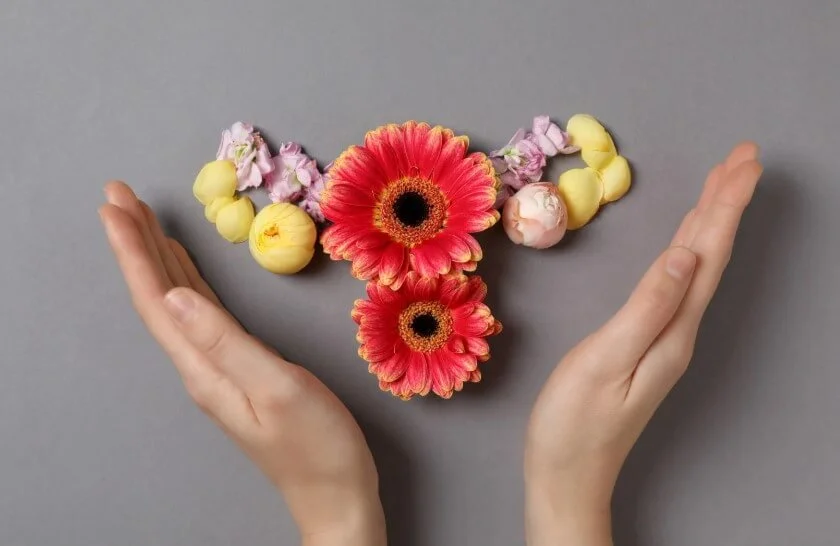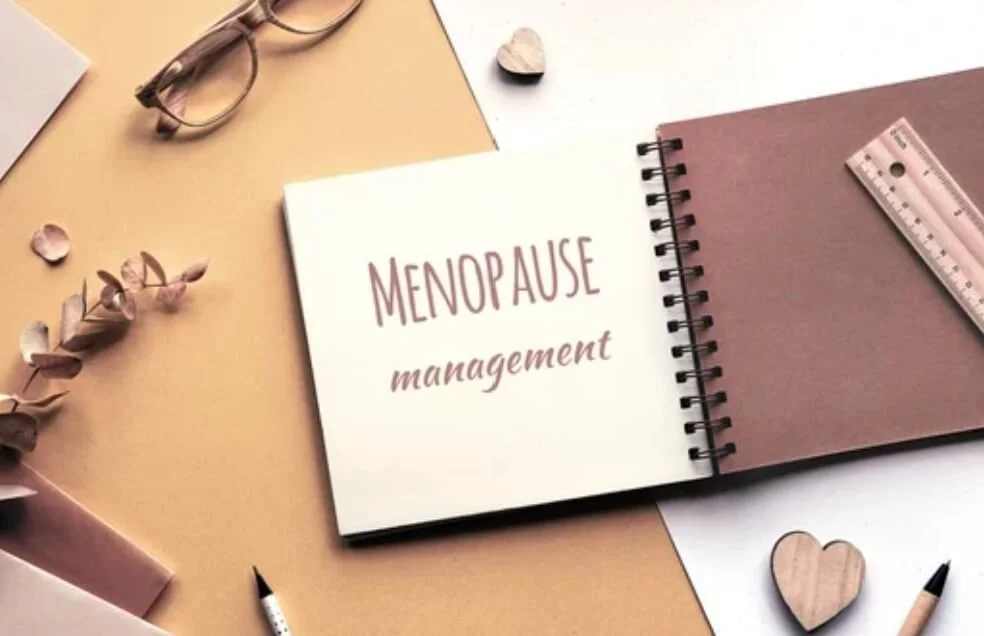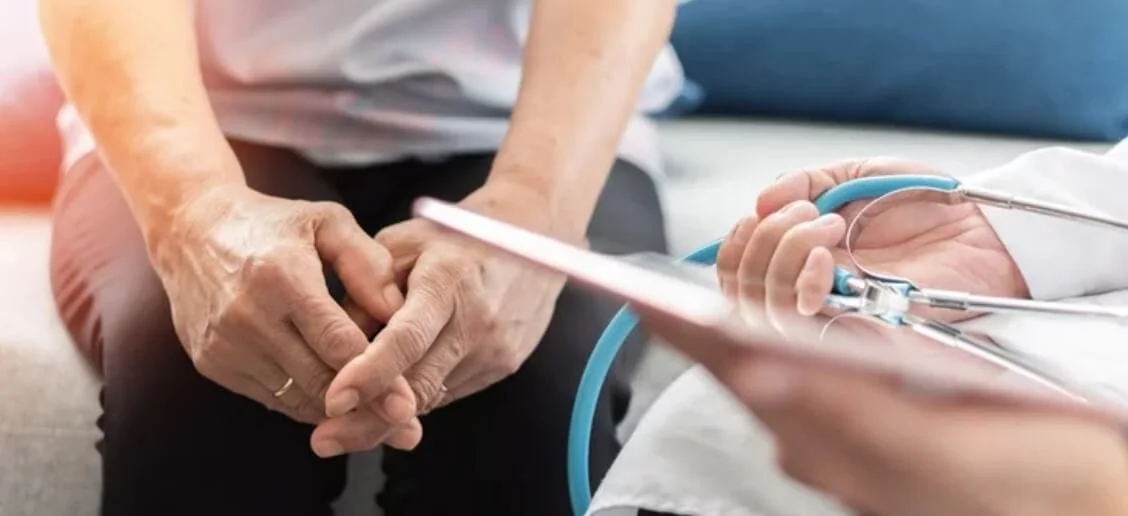Navigating Menopause: How Ayurveda Offers Holistic Support for a Smooth Transition
Menopause is a natural phase in a woman’s life.
Recognize you're being initiated into your most sovereign years.
Menopause is a natural and profound milestone in every woman's life, signifying the end of reproductive years and the beginning of a new chapter. Far from being a mere biological event, it's a dynamic transition that often brings a complex array of physiological and psychological symptoms that can significantly impact daily life and overall quality of life (Santoro et al., 2021). From the disruptive heat of hot flashes and night sweats to emotional fluctuations, sleep disturbances, temporary cognitive changes, and genitourinary symptoms, many women seek supportive strategies to navigate this journey. While conventional management options exist, an increasing number are exploring complementary approaches like Ayurveda for holistic relief.
Menopause: The Conventional and Ayurvedic Perspectives
From a conventional medical standpoint, the menopause transition involves intricate hormonal shifts, primarily the decline in estrogen levels. These fluctuations are directly linked to the bothersome symptoms women experience, such as vasomotor symptoms (affecting up to 80% of women), mood disturbances, genitourinary symptoms, and sleep difficulties (Lega et al., 2023; Santoro et al., 2021).
When postmenopausal women experience estrogen deficiency, they may encounter various physical symptoms like hot flashes, night sweats, inflammatory skin issues, palpitations, trouble sleeping, fatigue, headaches, changes in weight, hair thinning, loss of bone density, vaginal dryness (which can cause discomfort during sex and decrease sexual satisfaction), and atrophy. These hormonal changes might also contribute to psychological effects such as anxiety, depression, forgetfulness, irritability, and problems with concentration (Usharani Pingali et al., 2025).
These symptoms can be distressing and significantly reduce quality of life, sometimes lasting for years or even over a decade (Lega et al., 2023). While hormone therapy (HT) is often considered the first-line treatment for bothersome vasomotor symptoms, concerns around its long-term use and potential risks lead many women to seek alternatives or complementary strategies (Lega et al., 2023).
Ayurveda, the ancient Indian science of life, views menopause as Rajonivrutti (cessation of menstruation) or Jarapakwa Avastha (the state of maturity or ripe age). It's not seen as a disease, but rather a natural physiological evolution primarily characterized by an increase in Vata dosha, coupled with Dhatukshaya (depletion of bodily tissues). This Vata dominance, exacerbated by hormonal changes, can lead to imbalances across all three doshas (Vata, Pitta, Kapha), manifesting in a wide spectrum of symptoms (Mor et al., 2025; Solanki et al., 2023). Ayurveda’s understanding of these symptoms shows a remarkable correlation with modern clinical presentations (Mor et al., 2025).
Let's look at how doshic imbalances might present during menopause, correlating traditional Ayurvedic symptoms (Lakshana) with modern observations:
Vataja Symptoms: Due to its cold, dry, and mobile qualities, an aggravation of Vata can lead to insomnia (Anidra), anxiety (Chittodvega), lower back pain (Kati Shula), joint pain (Asthivedana), muscle weakness (Balahani), and dryness of skin and mucosa (Parushata), including vaginal dryness (Mor et al., 2025).
Pittaja Symptoms: As the body tries to compensate for changes, Pitta (the fire element) can become aggravated, leading to hot flashes (Santapa), excessive sweating (Atisveda), irritability (Chittodvega), excessive thirst (Atipipasa), and skin inflammation (Mor et al., 2025).
Kaphaja Symptoms: While Vata and Pitta typically increase, a Kapha imbalance can also occur, contributing to weight gain (Medo Vriddhi), lethargy (Staimitya), heaviness in the body (Gurutva), and metabolic disturbances (Mor et al., 2025).
Ayurveda’s Approach to Menopause.
Ancient Ayurvedic principles meet modern research on women's biology.
Ayurveda’s Personalized & Holistic Approach to Menopause
Ayurveda offers a deeply personalized and time-tested framework for gracefully navigating menopause. It focuses on restoring balance by pacifying the aggravated doshas, strengthening Agni (digestive fire), clearing Ama (toxins), and nourishing the dhatus (tissues). This holistic strategy encompasses several key areas:
Dietary Adjustments (Ahara): Food is medicine in Ayurveda. A qualified practitioner will recommend specific dietary changes tailored to your unique Prakruti (constitution) and Vikruti (current imbalance). This often involves favouring warm, moist, nourishing, and easily digestible foods to pacify Vata, cooling and non-acidic foods for Pitta, and light, dry, and warm foods for Kapha. Emphasizing whole, fresh foods, and avoiding processed or artificial ingredients is key to maintaining a strong Agni (Solanki et al., 2023).
For Vata-dominant symptoms, increase warm, nourishing foods and spices like ginger and cumin, while decreasing cold, raw foods and caffeine.
For Pitta-dominant symptoms, focus on cooling foods, sweet fruits, and non-spicy meals, avoiding hot and acidic items.
For Kapha-dominant symptoms, opt for light, dry, and warm foods, along with stimulating spices like turmeric and black pepper, and avoid heavy, oily, and sweet foods.
Lifestyle Practices (Vihara - Dinacharya): Ayurveda emphasizes a consistent daily routine (Dinacharya) to harmonize the body with natural rhythms. This includes:
Mindful Eating: Eating in a calm environment, chewing thoroughly, and paying attention to hunger/satiety signals to improve digestion and absorption.
Stress Management: Techniques such as meditation, deep breathing exercises (Pranayama), and gentle yoga can significantly reduce anxiety, improve mood, and enhance sleep quality, directly addressing common menopausal challenges (Solanki et al., 2023).
Regular Sleep Routine: Prioritizing consistent sleep patterns (according to the circadian rhythm) helps to stabilize hormones and calm the nervous system, ideally with early bedtimes.
Gentle Exercise: Activities like walking, swimming, or restorative yoga support bone health, circulation, and emotional well -being.
Self-Care: Abhyanga (warm oil self-massage) is also highly recommended to nourish the skin and calm the nervous system, particularly for Vata imbalances (Mor et al., 2025).
Herbal Support (Chikitsa): Ayurvedic herbs are powerful allies during menopause. A qualified practitioner carefully selects herbs based on an individual's doshic imbalance and specific symptoms. Herbs are chosen for their ability to balance hormones, reduce hot flashes, improve sleep, support emotional stability, and nourish tissues. Common categories include:
Rasayana Therapy: Rejuvenating herbs that promote longevity, improve memory and intellect, enhance complexion, and strengthen immunity. Examples often include Ashwagandha and Triphala (Mor et al., 2025).
Phytoestrogenic Herbs: Some herbs contain plant compounds that can gently modulate hormonal activity, such as Shatavari’s phytoestrogens are able to act similarly to the body's own estrogen by binding to estrogen receptors.
Adaptogenic Herbs: Herbs that help the body adapt to stress and balance the nervous system, such as Ashwagandha.
Cooling Herbs: For Pitta-dominant symptoms like hot flashes, herbs with cooling properties may be recommended for example Shatavari.
Ayurvedic Therapies (Panchakarma): For deeper cleansing and rejuvenation, a practitioner might recommend specific Ayurvedic treatments. These are highly individualized and should always be performed under the guidance of an experienced Ayurvedic practitioner (Solanki et al., 2023; Mor et al., 2025).
Abhyanga: A warm oil self-massage that deeply nourishes the skin, calms the nervous system, and helps to ground Vata.
Shirodhara: A gentle, continuous stream of warm oil poured over the forehead, profoundly relaxing the mind and alleviating anxiety and insomnia.
Basti: Medicated enemas can be highly effective in pacifying Vata, addressing issues like constipation, dryness, and nervous system imbalances.
Nasya: Nasal administration of medicated oils to clear sinus passages, soothe nasal tissues, and promote mental clarity.
Panchakarma: A series of intensive detoxification and rejuvenation therapies designed to profoundly cleanse the body of Ama and restore imbalances in dosha.
You are not alone!
REVIVE Ayurveda will help support your Menopause journey.
Embrace Your Menopause Journey with REVIVE Ayurveda
Ayurveda offers a compassionate and empowering path through menopause, helping women embrace this transition with grace and vitality. By focusing on individualized care, it moves beyond a "one-size-fits-all" approach, addressing the unique needs of each woman.
BOOK a 20-minute FREE Ayurveda consult to navigate your menopause journey.
Written by Ann Pallis, Ayurvedic Practitioner in Ashburton, Melbourne.
Important Considerations for Your Wellbeing:
It’s crucial to understand that Ayurvedic approaches are complementary therapies designed to support your well-being, not to replace conventional medical treatment. Menopause is a significant health event, and you should always consult with your primary healthcare provider to discuss all symptoms and treatment options. For a safe and effective Ayurvedic plan tailored to your unique constitution and health goals, always seek guidance from a qualified Ayurvedic practitioner.
References
Lega, I. C., Fine, A., Antoniades, M. L., & Jacobson, M. (2023). A pragmatic approach to the management of menopause. CMAJ, 195(19), E677-E682. https://doi.org/10.1503/cmaj.221438
Mor, N., Nautiyal, S., & Darshana. (2025). Menopause in Ayurveda - A Comprehensive Analysis of Rajonivrtti Lakshana. SEEJPH, XXVI(S1), 5886-5894.
Santoro, N., Roeca, C., Peters, B. A., & Neal-Perry, G. (2021). The Menopause Transition: Signs, Symptoms, and Management Options. The Journal of Clinical Endocrinology & Metabolism, 106(1), 1–15. https://doi.org/10.1210/clinem/dgaa764
Solanki, J. K., Rajpurohit, S., & Bano, S. (2023). Menopausal Syndrome - Ayurvedic Review. Journal of Ayurveda and Integrated Medical Sciences, 8(8), 190–195. http://dx.doi.org/10.21760/jaims.8.8.29
Usharani Pingali, Chandrasekhar Nutalapati, & Wang, Y. (2025). Ashwagandha and Shatavari Extracts Dose-Dependently Reduce Menopause Symptoms, Vascular Dysfunction, and Bone Resorption in Postmenopausal Women: A Randomized, Double-Blind, Placebo-Controlled Study. Journal of Menopausal Medicine, 31. https://doi.org/10.6118/jmm.24025
Tawalare, K., Wakde, S., Tawalare, K. A., Bhamkar, S., Bagde, R., Saoji, A., Gode, D., Chaudhari, S., Hazare, S., Khatri, S., Pusadekar, Y., & Kanitkar, M. (2024). Estimation of prakriti (body constitution) in women of Eastern Maharashtra tribal belt of central India featuring early and premature menopause. Journal of Family Medicine and Primary Care, 13(5), 1665–1669. https://doi.org/10.4103/jfmpc.jfmpc_376_23



